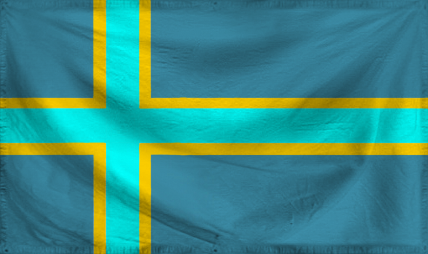
Advertisement

![]() by Roedean » Thu Apr 30, 2020 9:08 am
by Roedean » Thu Apr 30, 2020 9:08 am

![]() by Poposhania » Thu Apr 30, 2020 10:50 am
by Poposhania » Thu Apr 30, 2020 10:50 am

![]() by British Socialist Syndicates » Thu Apr 30, 2020 2:24 pm
by British Socialist Syndicates » Thu Apr 30, 2020 2:24 pm

![]() by Wack-i » Thu Apr 30, 2020 2:28 pm
by Wack-i » Thu Apr 30, 2020 2:28 pm

![]() by Syrel » Thu Apr 30, 2020 10:42 pm
by Syrel » Thu Apr 30, 2020 10:42 pm
Curriculum: Math, Arabic, Religious Studies, History, English, Reading & Comprehension. Anti-bullying.
Curriculum: Math, Arabic, Religious Studies, Science, History, Reading & Comprehension, English. Anti-bullying.
Curriculum: Math, Arabic, Religious Studies, Science, History, Reading & Comprehension, English, Philosophy. Anti-bullying.
Curriculum: Math, Arabic, Religious Studies, Science, History, Reading & Comprehension, English, Philosophy. Anti-bullying.
Curriculum: Math, Arabic, Religious Studies, Science, History, Reading & Comprehension, English, Philosophy. Anti-bullying.
Curriculum: Math, Arabic, Religious Studies, Science, History, Reading & Comprehension, English, Philosophy, Economics, Business. Anti-bullying.
Curriculum: Math, Arabic, Religious Studies, Science, History, Reading & Comprehension, English, Philosophy, Economics, Business. Anti-bullying.
Curriculum: Math, Arabic, Religious Studies, Science, History, Reading & Comprehension, English, Philosophy. Anti-bullying.
Curriculum: Math, Religious Studies, Science, History, Reading & Comprehension, English, Philosophy. Anti-bullying.
Curriculum: Math, Religious Studies, Science, History, Reading & Comprehension, English, Philosophy. Specialization Classes include Four routes: Business, Trade, STEM, Clergy. Anti-bullying.
Curriculum: Math, Religious Studies, Science, History, Reading & Comprehension, English, Philosophy. Specialization Classes include Four routes: Business, Trade, STEM, Clergy.
Curriculum: Math, Religious Studies, Science, History, Reading & Comprehension, English, Philosophy. Specialization Classes include Four routes: Business, Trade, STEM, Clergy.

![]() by Enaldo » Fri Oct 09, 2020 12:05 am
by Enaldo » Fri Oct 09, 2020 12:05 am

![]() by The Frozen Forest » Sat Oct 10, 2020 1:14 am
by The Frozen Forest » Sat Oct 10, 2020 1:14 am

![]() by Technoscience Leftwing » Sat Oct 10, 2020 2:47 am
by Technoscience Leftwing » Sat Oct 10, 2020 2:47 am

![]() by Andocara » Wed Oct 14, 2020 10:16 pm
by Andocara » Wed Oct 14, 2020 10:16 pm

![]() by Gill Dover » Wed Oct 28, 2020 3:13 am
by Gill Dover » Wed Oct 28, 2020 3:13 am

![]() by Vesteysia » Wed Oct 28, 2020 4:00 am
by Vesteysia » Wed Oct 28, 2020 4:00 am
Basic English, Basic Math, Basic Science, Reading
English, Math, Science, Vesteysian History, Physical Education
English, Math, Science, Vesteysian History, Geography, Physical Education
English, Math, Science, Vesteysian History, Politics, Law, Geography, Physical Education
English, Math, Science, Chemistry, Vesteysian History, Politics, Law, Geography, Physical Education
English, Math, Science, Biology, Vesteysian History, Politics, Law, Geography, Physical Education
English, Math, Science, Chemistry, Biology, Vesteysian History, Politics, Law, Geography, Physical Education
Advanced English, Advanced Mathematics, Advanced Science, History, Geography, Physical Education, Arms Training
Advanced English, Advanced Mathematics, Advanced Science, History, Geography, Physical Education, Hand-to-Hand Combat
Advanced English, Advanced Mathematics, Advanced Science, History, Geography, Physical Education, Hand-to-Hand Combat, Arms Training

![]() by Gentem Ignis » Wed Oct 28, 2020 6:24 am
by Gentem Ignis » Wed Oct 28, 2020 6:24 am
The Caleshan Valkyrie wrote:Wait... they’re run by an exgelord with terrible impulse control? Uhhhhhhhhh...

![]() by Indian Empire » Wed Oct 28, 2020 8:09 am
by Indian Empire » Wed Oct 28, 2020 8:09 am

![]() by Orderiam » Wed Oct 28, 2020 4:27 pm
by Orderiam » Wed Oct 28, 2020 4:27 pm

![]() by Barsia and Olessia » Sat Oct 31, 2020 12:32 am
by Barsia and Olessia » Sat Oct 31, 2020 12:32 am

![]() by Kaiserholt » Tue Nov 03, 2020 2:11 pm
by Kaiserholt » Tue Nov 03, 2020 2:11 pm

![]() by Mobius and the Biscay » Sat Nov 07, 2020 8:10 am
by Mobius and the Biscay » Sat Nov 07, 2020 8:10 am

![]() by Kantian Germany » Mon Nov 09, 2020 2:07 pm
by Kantian Germany » Mon Nov 09, 2020 2:07 pm

![]() by Dar Al-Fitra » Mon Nov 09, 2020 2:16 pm
by Dar Al-Fitra » Mon Nov 09, 2020 2:16 pm


![]() by Raye Czachorowski » Thu Feb 11, 2021 2:57 am
by Raye Czachorowski » Thu Feb 11, 2021 2:57 am

![]() by Barinive » Sun Feb 11, 2024 5:38 am
by Barinive » Sun Feb 11, 2024 5:38 am
Advertisement
Return to Factbooks and National Information
Users browsing this forum: The Italian Socialist Union
Advertisement